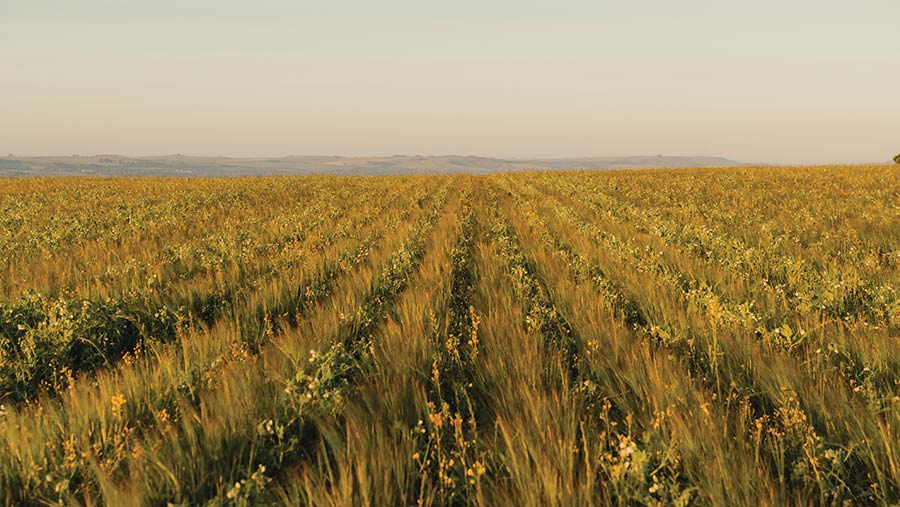What changes are being made to the Wildfarmed standards for harvest 2024
 © Wildfarmed
© Wildfarmed A change to the Wildfarmed standards now allows crops destined for the company to be grown on a rotational basis.
Previously, growers had to dedicate blocks of land to the system in a three-year agreement, as well as follow a set of standards that include greater plant diversity and no pesticides.
Following feedback from the community of farmers already signed up to the innovative field-to-plate system, which rewards regenerative practices with a higher grain price, there has been a change introduced for harvest 2024 crops.
See also: Autonomous sugar beet planting and weeding shows promise
“Our intention has always been to keep the rulebook short and work with our growers to encourage diversity and soil health through the implementation of our standards and the use of observation-based farming,” says Harriet Cherry, agricultural relationship manager at Wildfarmed.
What is Wildfarmed?
Wildfarmed is a route to market for cereals grown using regenerative farming practices and with greater plant diversity.
Set up by DJ musician Andy Cato and two colleagues, the company has developed a set of robust standards that are audited independently and followed by its community of arable farmers.
With its emphasis on working with nature, the premise behind the business is that food choices can help to change landscapes.
For growers, polycrops and bi-crops can be purchased whole, if preferred, and there is a choice on whether to fix the price or take the premium on a floating basis at harvest.
“As a result, the fields committed to our system can now be moved around the farm.”
Otherwise, crops still need to be grown with companions, no pesticides can be applied from drilling, a maximum of 80kg/ha of nitrogen can be used based on need, and livestock must be integrated into the system at least once in three years.
The company’s goal remains whole-farm rotations and efforts continue to create markets for all the crops grown. Barley has already begun with the launch of a regenerative beer, and oats are in progress, although most of the current growers are focused on wheat.
There are now more than 400 customers for Wildfarmed flour, including Marks and Spencer, the pizza chain Franco Manca, Manchester City football club and bakery chain Gail’s.
Wildfarmed flour is also being used in 850 of Gregg’s breakfast clubs.
“These are mostly urban-based customers who care about food,” says Harriet. “The environmental story is important to them, but so is taste.”
The inclusion of cover crops in the Wildfarmed standards means their destruction method continues to create debate, so research commissioned by the company began with Rothamsted last year to look at the effects of tillage and glyphosate on soil biology.
“Soil biology is the key to success in non-chemical systems and we believe our standards are the best way to fast-track this,” she adds.
“However, it’s become apparent that whether farmers should use tillage or glyphosate to terminate covers is a big issue, with many well-informed people arguing strongly either way.”
Wildfarmed standards
- Companion plants
- Capped nitrogen fertiliser use
- Cover crops
- Integrate livestock
- No pesticides
Spring offer
A spring wheat offer worth £325/t, with a generous milling specification, is available from Wildfarmed.
Crops must be grown with companions, in line with the company’s standards, with whole crop collection offered.
The specification is 11% protein and 225 Hagberg, with the spring variety blend supplied including Mulika, Nissaba, Tybalt and Alicia. Growers are also permitted to use farm-saved seed.
Wildfarmed and SFI
Existing Sustainable Farming Incentive (SFI) options work well with the Wildfarmed standards and will bring additional income to farms already committed to the system.
Actions such as SAM2 overwinter cover crops at £129/ha, IPM 3 companion cropping at £55/ha and IPM 4 no insecticides at £45/ha, will all be possible and can be stacked.
That approach gives up to £229/ha.
Alternatively, AB14 – low input cereals – at £354/ha is another option, but it can’t be stacked with the SFI IPM actions.

